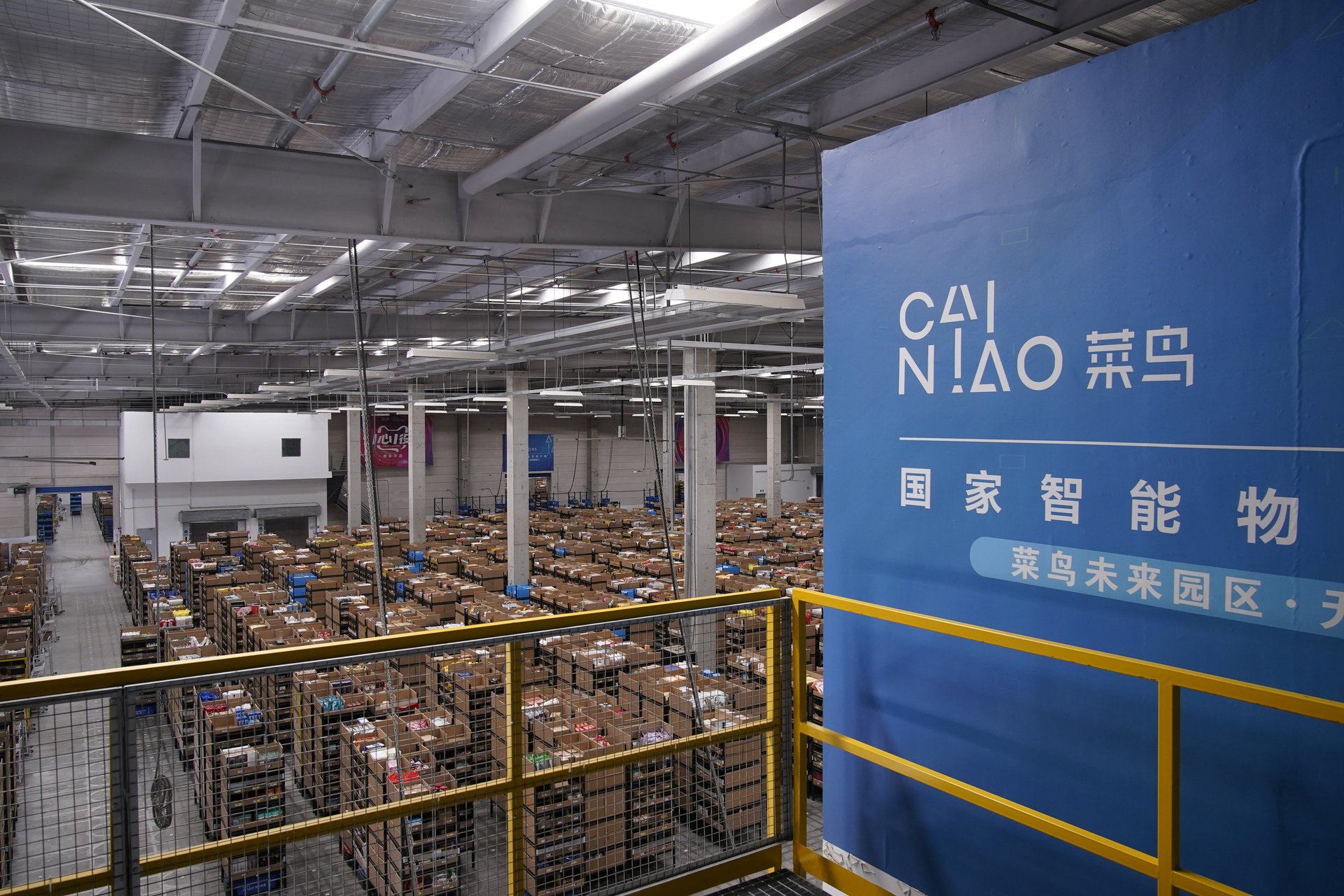China’s e-commerce inroads are back in focus amid Alibaba’s “possible espionage” in Europe
The proliferation of Chinese e-commerce companies heightens national security concerns

Beijing’s aggressive industrial policy goals are back in focus as Belgium contends with alleged espionage activities arising from a logistic arm of Alibaba at an airport in Liège, Europe’s fifth-largest cargo airport hub.
Suggested Reading
Belgium Security services are investigating “possible espionage and/or interference activities” carried out by Chinese entities including Alibaba, according to the Financial Times.
Related Content
The focus of the investigation is an Alibaba logistics spin-off called Cainiao that handles goods sold to European customers through the e-commerce website Aliexpress. The Belgium State Security Service reportedly has been monitoring Alibaba’s operations for two years due to a Chinese regulation requiring companies to share their data with Chinese authorities and intelligence.
This law allows the government to request items transiting through the hub to be cataloged or modified, says Carlos Perez, research practice lead at TrustedSec, a cybersecurity firm. These modified items could be leveraged in the future for cyber warfare.
What is economic espionage?
Any targeting or acquisition of secret information involving trade, technology, or financial details is considered economic espionage.
A company like Alibaba could be using its equipment in an airport hub to collect proprietary data involving transactions between companies and countries purchasing goods, according to John Vecchi, the chief marketing officer at Phosphorus Cybersecurity.

“The Chinese are seeing a command and control that sucks all the data out,” Vecchi said. “They would be able to see who the companies are, their personnel, and the people making the purchases, and they may be able to exploit the companies involved in those transactions.”
Concerns over Chinese e-commerce warehouse expansions
China’s rapid rise in the e-commerce space is part of a roadmap to dominate global markets, an agenda that worries US authorities. Cargo hubs and warehouses are vital to the success of fast goods delivery, but they come with heightened risks of being run with sophisticated technology serving as a trojan horse for spying operations.
“The Chinese can ship the technology with malware already in it,” said Vecchi. “Once you install and operate on the network, the malware proliferates.”
As a first step towards mitigating spying risks, the US Federal Communications Commission (FCC) took steps to ban a wide range of Chinese telecommunication devices and equipment from import.
But what about devices already in hand, and the apps that have already been downloaded to them?
TikTok, a Chinese social media giant, recently launched online shopping in the US and have started building out fulfillment centers. In the UK, it recently launched a “fulfilled by TikTok” feature in the UK.

Chinese online fashion retailer Shein rapidly raised its profile, and eyebrows, as it increased its share of the US fast-fashion market from 18% in March 2020 to 50% by November 2022. Shein’s mobile app briefly became more popular than TikTok, Instagram, or Twitter, with 27 million downloads.
Other Chinese online retailers, including Temu and LightInTheBox, also grew exponentially, requiring distribution centers to ship goods to customers.
Deleting your TikTok app isn’t going to stop spying risks, said Vecchi, but he’s urging greater awareness on the part of consumers.